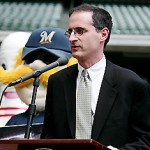WEAC and MTEA: This Is War (I Expect)
The decision by the state’s largest teachers organization, the Wisconsin Education Association Council (WEAC), to alter its stands on teacher evaluation and advocate breaking from the traditional method of paying teachers was not such a huge surprise for those who had been following statements from union leaders in recent months. The educational and political landscapes have changed, and the union wants to play a role in big decisions coming soon.
But the WEAC stand in favor of breaking up Milwaukee Public Schools into “smaller, more manageable districts” caught people (count me in) off guard. It’s just not something to which the union had shown previous inclination. And the Milwaukee Teachers’ Education Association, WEAC’s largest affiliate, strongly opposes such ideas.
There were clear indications in the way things happened this week that the gap between leaders of WEAC and the MTEA is now wide and sharp, and communication among them is not friendly.

